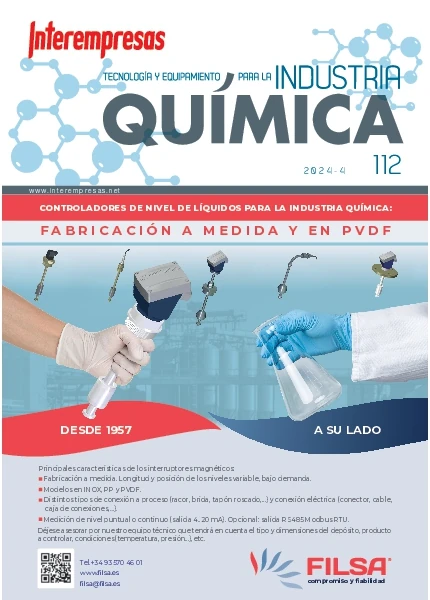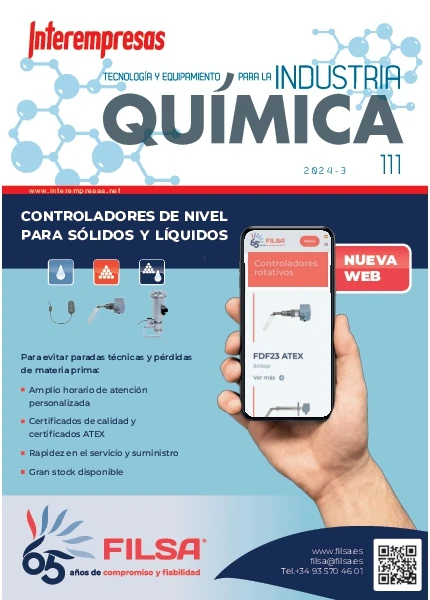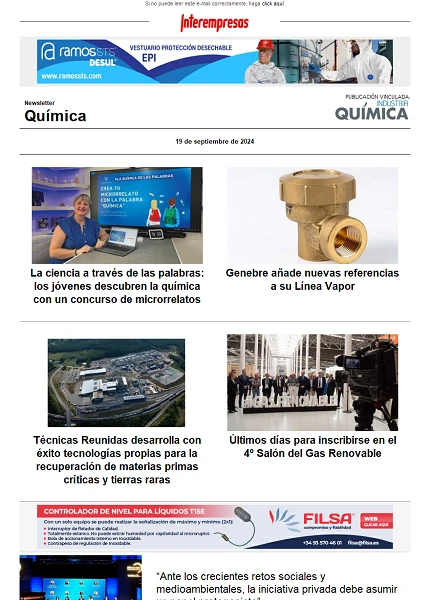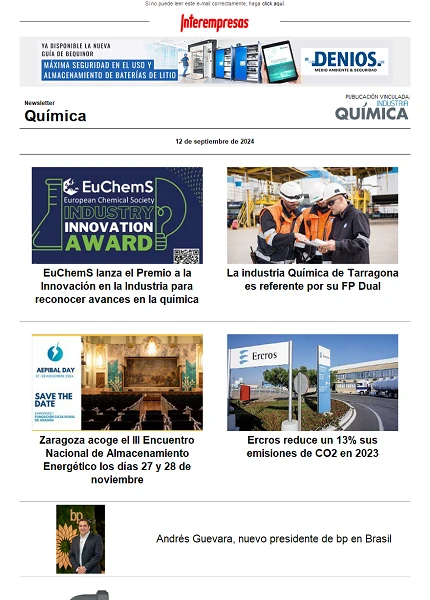"El PNA, en su primera fase, no ha logrado el objetivo de incentivar la reducción de emisiones"
Entrevista a Cecilia Foronda, responsable de CeroCO2, de la Fundación Ecología y Desarrollo
15 de noviembre de 2008
CeroCO2 es una iniciativa conjunta de la Fundación Ecología y Desarrollo y de la Fundación Natura, que pretende sensibilizar a la sociedad sobre la necesidad de iniciar una acción inmediata contra el calentamiento del planeta, ofreciendo herramientas para calcular, reducir y compensar las emisiones de CO2. Entre las entidades asociadas a la fundación, que ha sido financiada por el Ministerio de Medio Ambiente para el desarrollo de algunas de sus actividades, figuran la Junta de Andalucía, los ayuntamientos de Zaragoza y Barcelona, el Gobierno de Cantabria y el Centro de Recursos Ambientales de Navarra. Hablamos con la responsable del proyecto CeroCO2 sobre la situación de las emisiones de gases de efecto invernadero.
¿Cuál es su opinión sobre la efectividad de los pactos del llamado Kioto II y del plan nacional de asignación de derechos de emisión? ¿Qué cambiaría usted?
El protocolo de Kioto fue un acuerdo de mínimos pero ha supuesto una punta de lanza en la lucha contra el cambio climático. Las arduas negociaciones que precedieron a la firma del protocolo muestran la dificultad para alcanzar compromisos globales. Hechos como que Estados Unidos, cuyas emisiones de GEI suponen un 22% del total y cuenta con las mayores reservas de carbón, no lo haya ratificado todavía, que Australia, el mayor exportador de carbono muestre, reticencias y que países emergentes con una economía basada en combustibles fósiles hayan quedado fuera del acuerdo ponen en duda la efectividad del acuerdo.
Los debates post-Kioto ya se han puesto en marcha y las soluciones para salvar las carencias del acuerdo anterior pasan por que los países en desarrollo como Brasil, China o Sudáfrica fijen un techo para sus emisiones, que los países industrializados apuesten de forma decidida por la I+D en tecnologías de mitigación y que estas se transfieran de forma eficiente a los países emergentes. El reto del nuevo acuerdo es conseguir un crecimiento económico desacoplado del aumento de la concentración de GEI en la atmósfera.
En cuanto al Plan Nacional de Asignación de derechos que surgió para articular el comercio europeo de emisiones en España y permitir el cumplimiento del compromiso español ratificado el Kioto, en su primera fase no ha logrado el objetivo de incentivar las reducciones de emisiones ya que el reparto de derechos superó las necesidades de las industrias por lo que los bajos precios del carbono han hecho que la compra de derechos fuese más rentable que la inversión en tecnologías de producción más limpia. La segunda fase del Plan Nacional de Asignación 2008-2012 ya ha sido aprobada y trata de subsanar estos errores.

Cecilia Foronda.
Démosle la vuelta al asunto y busquemos la solución en la fuente del problema: ¿Qué desarrollos puede llevar a cabo el sector químico para reducir las emisiones de gases de efecto invernadero?
Las empresas del sector químico son en su mayoría intensivas en el consumo de combustibles fósiles dado que la mayor parte de los procesos requieren grandes cantidades de energía. La solución para reducir sus emisiones de gases de efecto invernadero pasa por un cambio de tecnologías que logren una mayor eficiencia energética de los procesos y permitan el uso de energías renovables.
Para bien o para mal, la atmósfera es “de una sola pieza”, así que las acciones deben tomarse a escala planetaria, pero ¿cuál es el papel de los países en vías de desarrollo? y ¿cuál es el nivel de emisiones de estos países?
La contribución de los países en vías de desarrollo al cambio climático no es comparable a la de los países industrializados. Por ejemplo, mientras que las emisiones per capita de un chino o un chileno son de 3,5 tCO
2/año las de un español son casi 3 veces mayores (9,59 tCO
2/año) y las de un estadounidense casi 6 veces más.
Aunque estas cifras dejan patente que la responsabilidad del cambio climático recae en los países industrializados, el espectacular crecimiento de economías emergente como la china hacen que estos países estén empezando a jugar un papel determinante en la lucha contra el calentamiento global.
“La solución de la industria química para reducir sus emisiones de gases de efecto invernadero pasa por un cambio de tecnologías que logren una mayor eficiencia energética de los procesos y permitan el uso de energías renovables”
Al hilo de la pregunta anterior, ¿qué derecho tenemos los países desarrollados a exigir a esos países que, aunque nosotros sí lo hicimos, ellos no exploten las fuentes de energía fósiles y frenen sus expectativas de bienestar (entendiendo el bienestar desde los parámetros que occidente los ha estado entendiendo… hasta ahora)?
Efectivamente, sería muy injusto. Precisamente para atajar este problema el Protocolo de Kioto estableció los Mecanismos de Desarrollo Limpio. Como su nombre indica estos mecanismos tienen como objetivo que los países industrializados transfieran recursos a los países en vías de desarrollo para facilitar la sustitución de los combustibles fósiles por tecnologías limpias. Sin esta financiación adicional el cambio no sería posible y los países en desarrollo utilizarían la fuente más barata a su alcance: los combustibles fósiles.
Los mecanismos de desarrollo limpio permiten a los países con compromisos de reducción cumplir una parte de los mismos compensando sus emisiones mediante la compra de las reducciones de carbono que generan proyectos de energías renovables, eficiencia energética, tratamiento de residuos y reforestación o deforestación evitada en países en vías de desarrollo. Estos proyectos no solo contribuyen a la mitigación del cambio climático sino que contribuyen a mejorar las condiciones de vida de las comunidades donde se desarrollan al dotarles de nuevas actividades económicas.
Cambiemos de tercio y tomemos ahora el punto de vista del consumidor. ¿Cree que ante tanto “lavado verde” y el continuo bombardeo de publicidad “eco”, el consumidor se está insensibilizando?
Aunque es cierto que en ocasiones la publicidad verde puede ser engañosa o tan abrumadora que genere desconfianza, es cierto que los consumidores están cada vez más concienciados con el problema y demandan que las empresas tengan un comportamiento más respetuoso con el medio ambiente. Para facilitar a los consumidores discernir entre el trigo y la paja son necesarias iniciativas que de forma seria evalúen las políticas medioambientales de las empresas y proporciones información objetiva al consumidor más allá de la publicidad.
En la imagen, detalle de una pared medianera aislada con lana de roca Rockwool.
¿Cómo cree que afectará la actual crisis económica a la sensibilidad medioambiental tanto en los gobiernos como en las empresas, y también en el consumidor? ¿Cree que el asunto pasará a un segundo plano?
Sin lugar a dudas cuando la economía se resiente el acto reflejo es que el medio ambiente pase a un segundo plano tanto para los gobiernos como para empresas y particulares. No obstante, por ejemplo en el caso de la lucha contra el cambio climático de no actuar ahora los costes futuros podrían ser mucho mayores. El informe Stern afirma que es necesaria una inversión equivalente al 1 por ciento del PIB mundial para mitigar los efectos del cambio climático y que de no hacerse dicha inversión el mundo se expondría a una recesión que podría alcanzar el 20 por ciento del PIB global.
Para ir cerrando esta entrevista, y ante la proximidad de las elecciones presidenciales en los Estados Unidos (*), quisiera saber su opinión sobre la repercusión que tendrán los resultados electorales sobre el aire que respiramos, en función de quién gane las elecciones, según las políticas medioambientales que ambos candidatos anuncian en sus programas.
Tanto McCain como Obama han abandonado la negación de Bush al cambio climático y en sus programas apuestan por adoptar medidas para luchar contra el calentamiento global. No obstante, el programa de Obama recoge propuestas medioambientales más sólidas, concretamente en materia de cambio climático, apuesta por establecer un sistema de venta de derechos emisión cuya recaudación se destinaría a invertir en energías renovables y eficiencia energética.
¿Cuál es, desde su punto de vista, el papel que debe representar el sector químico ante los retos medioambientales a que se enfrenta la humanidad?
El cambio climático es un problema global que requiere soluciones globales que impliquen a todos los sectores de la sociedad y a todos los países. El modelo de desarrollo actual basado en los combustibles fósiles resulta insostenible por lo que un cambio de paradigma es necesario para conseguir una economía baja en carbono. La industria química, por su representatividad y peso en la economía, puede actuar como motor de cambio siendo un ejemplo en la adopción de medidas para gestionar sus emisiones de gases de efecto invernadero que contribuyan a cumplir con los compromisos de reducción adquiridos por el gobierno español.
Así mismo la presencia de la industria química en países en vías de desarrollo, donde las consecuencias del cambio climático se vivirán con mayor intensidad debido a su situación geográfica y a los menores recursos para hacerles frente, tiene que actuar como impulsor de medidas que permitan la transferencia de recursos y tecnología que contribuyan a la mitigación y adaptación al cambio climático en estos países. Esto redundará, por un lado en la mejora de las condiciones de vida en estos países y por otro, en la minimización de los riesgos que el cambio climático supone para las inversiones del sector químico en estos países.
(*) La entrevista fue realizada pocos días antes del 4 de noviembre, cuando aún se desconocía el desenlace electoral de las presidenciales estadounidenses.










































